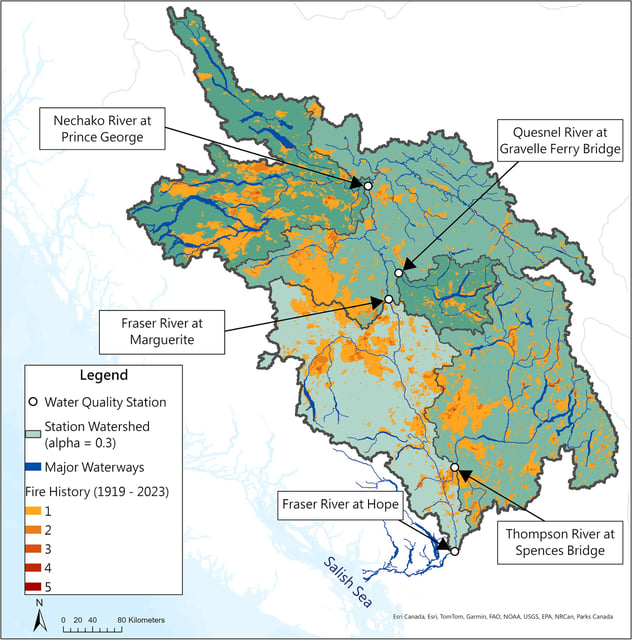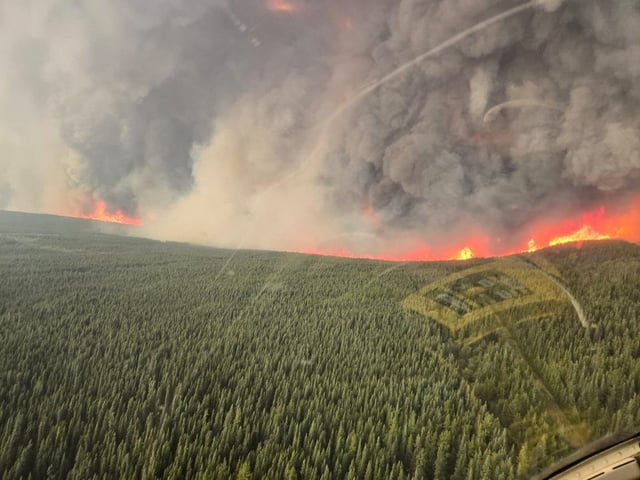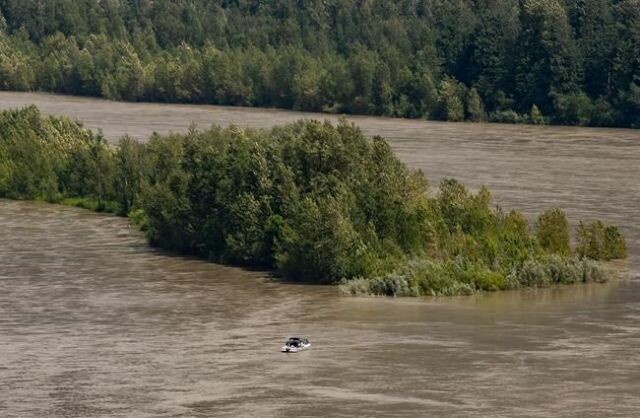Overview
- Researchers used 20 years of Environment Canada data to attribute up to 16.3% of water-quality shifts in the Fraser River basin to wildfire runoff.
- Burned forests release arsenic, lead, cadmium and excess nutrients that elevate contaminant levels in tributaries for months after fires.
- Climate change–driven shifts from snow-fed to rain-dominated flows risk breaking down black carbon before ocean burial, potentially returning more CO₂ to the atmosphere.
- Elevated nutrient loads from fires can trigger toxic algae blooms that deplete oxygen and threaten salmon, shellfish and other Salish Sea species.
- Scientists and Indigenous leaders urge expanded pollutant guidelines and support for Indigenous-led prescribed burning to restore natural fire regimes and protect watershed health.


